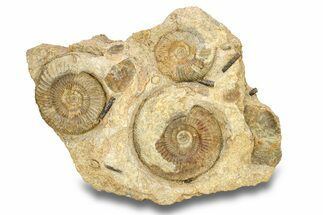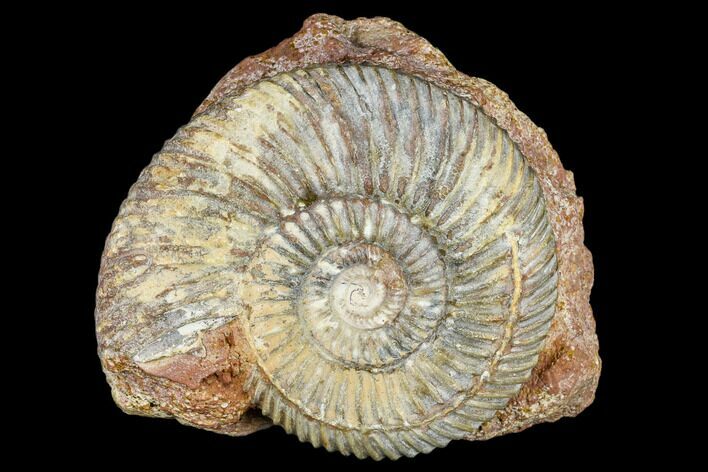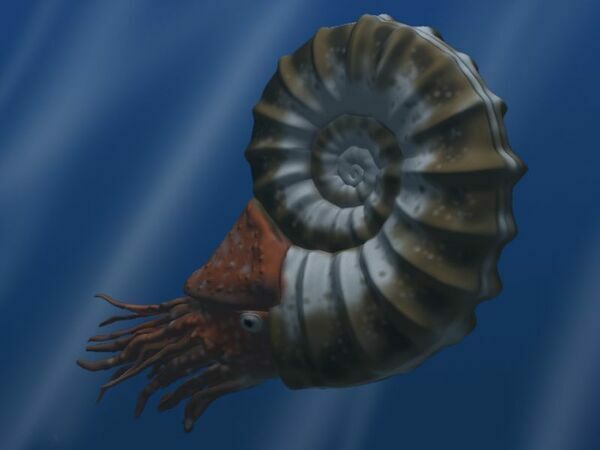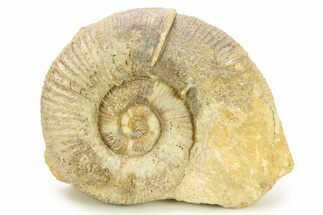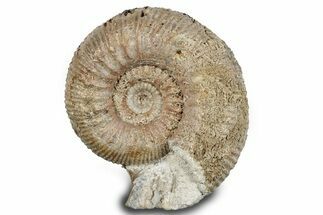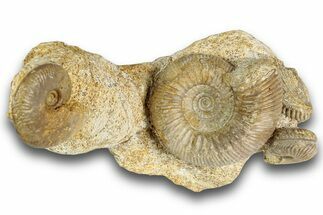This Specimen has been sold.
2.8" Jurassic Ammonite (Parkinsonia) Fossil - Germany
This is a beautifully preserved, 2.8" wide Parkinsonia sp. ammonite from Sengenthal, Germany. This Jurassic aged ammonite is still partially embedded in the rock from which it was removed from. The base of this rock is flat and allows for aesthetic presentation without the assistance of a stand.
About Ammonites
Ammonites were ancient marine cephalopods, similar to today's squids and octopuses, but with a defining feature: their distinctive, tightly coiled spiral shells. These shells, resembling those of modern nautiluses, served as both a protective home and a buoyancy aid, allowing ammonites to navigate the prehistoric seas with ease. First emerging around 240 million years ago in the Triassic Period, ammonites thrived for over 175 million years, adapting through numerous forms and sizes. As predatory creatures, they likely fed on smaller marine organisms, using their tentacles to capture prey. However, their long reign came to an end 65 million years ago at the close of the Cretaceous, coinciding with the mass extinction event that also eliminated the dinosaurs.
Ammonites were ancient marine cephalopods, similar to today's squids and octopuses, but with a defining feature: their distinctive, tightly coiled spiral shells. These shells, resembling those of modern nautiluses, served as both a protective home and a buoyancy aid, allowing ammonites to navigate the prehistoric seas with ease. First emerging around 240 million years ago in the Triassic Period, ammonites thrived for over 175 million years, adapting through numerous forms and sizes. As predatory creatures, they likely fed on smaller marine organisms, using their tentacles to capture prey. However, their long reign came to an end 65 million years ago at the close of the Cretaceous, coinciding with the mass extinction event that also eliminated the dinosaurs.
SPECIES
Parkinsonia sp.
LOCATION
Sengenthal, Germany
SIZE
2.8" wide ammonite, 3.2 x 2.6" including rock
CATEGORY
SUB CATEGORY
ITEM
#113146
We guarantee the authenticity of all of our specimens.
 Reviews
Reviews


